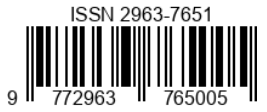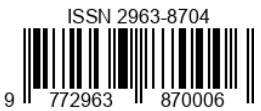Pandangan Hukum Islam Terhadap Kewarisan Anak Angkat Di Kota Gorontalo
DOI:
https://doi.org/10.55606/jhpis.v2i3.1996Keywords:
Inheritance, Adopted Children, Islamic lawAbstract
This research aims to provide knowledge to the community regarding the limitations for adopted children, especially in terms of inheritance, so that the community is not wrong in providing knowledge about adopted children. This research is a field research (Field Research), the data sources used are primary data sources collected through interviews, documentation and observation. Primary data is obtained directly from respondents regarding inheritance for adopted children in Islamic law and customary law, while secondary data is in the form of legal theories and norms as well as other supporting data obtained from literature, documentation and biographies. All of these data are materials to describe an overview of Islamic law regarding inheritance for adopted children in the perspective of customary law.
Based on the results of the research, it turns out that the Indigenous people of the city of Gorontalo, in giving their inheritance to adopted children, carry out the provisions of Islamic inheritance law and some carry out customary inheritance law. For people who implement Islamic law, the adopted child does not get an inheritance but gets assets in the form of a mandatory testament and may not exceed 1/3 of the assets left behind, while for people who use Javanese customary law they determine their own in accordance with the agreement in the deliberations of experts the heir concerned. It is better for people who adhere to Javanese customs to be given knowledge about Islamic inheritance law.
Downloads
References
Suhrawardi K. Lubis, dan Komis Simanjuntak, Hukum Kewarisan Islam (Jakarta: Sinar Grafika, 2018), h. 252.
Hilman Hadi Kusumo, Hukum Waris Adat (Jakarta: PT Citra Aditya Bakti, 2011), h. 58
Nurul Irfan, Nasab dan Status Anak dalam Hukum Islam (Jakarta: Amzah, 2013), h. 59.
Fathurrahman, Ilmu Waris (Bandung: Al-ma’arif, 2015), h. 116.
Depaartemen Agama RI, Al-Qur’an dan Terjemahnya (Semarang: Asy-Syifa, 2019), h. 78
Wawancara Dengan Bapak Suparman di kota gorontalo, 30 Mei 2022,
Fuad Mohnd, Fachruddin, Masalah Anak dalam Hukum Islam (Jakarta: Pedoman Ilmu Jaya, 2015), h. 81.
Soerojo Wignjodipoero, Pengantar dan Asas-asas Hukum Adat (Jakarta: PT. Gunung Agung, 2011), h. 64-65.
Ahmad Ihsan, Hukum Perdata (Jakarta: Pembimbing Masa, 2016), h. 120
Hasan Saleh, Kajian Fiqh Nabawi dan Fiqh Kontemporer (Jakarta: Rajawali Pers, 2018), h. 342.
Muhammad Shahrur, Metodeologi Fikih Islam Konterporer, diterjemahkan oleh Sahiron Syamsuddin, MA dan Burhanudin (Jakarta: Elsaq Prees, 2014), h. 329.
Sayid Sabiq, Fiqh Sunah (Beirut: Darul Fikry, 2013), h. 95
Soedharyo Soimin, Hukum Orang dan Keluarga (Jakarta: Sinar Grafika, 2011), h. 35.
Habibilah Burhan, “Status Nasab dan Nafkah Anak yang di Li‟an Menurut Hukum Islam dan Hukum Perdata Indonesia”, Al-Adalah, Vol. 11 No. 1 (Juni 2016), h. 1-30.
Muhammad Shahrur, Metodeologi Fikih Islam Konterporer, diterjemahkan oleh Sahiron Syamsuddin, MA dan Burhanudin (Jakarta: Elsaq Prees, 2014), h. 329.
Budiarto, Pengangkatan Anak Ditinjau dari Segi Hukum (Bandung: Akapress, 2011), h. 127.
Suparman Usman, Hukum Waris Menurut Kitab Undang-undang Hukum Perdata (Serang: Darul Ulum Press, 2013), h. 42.








